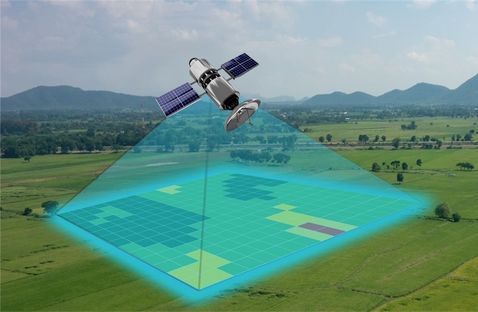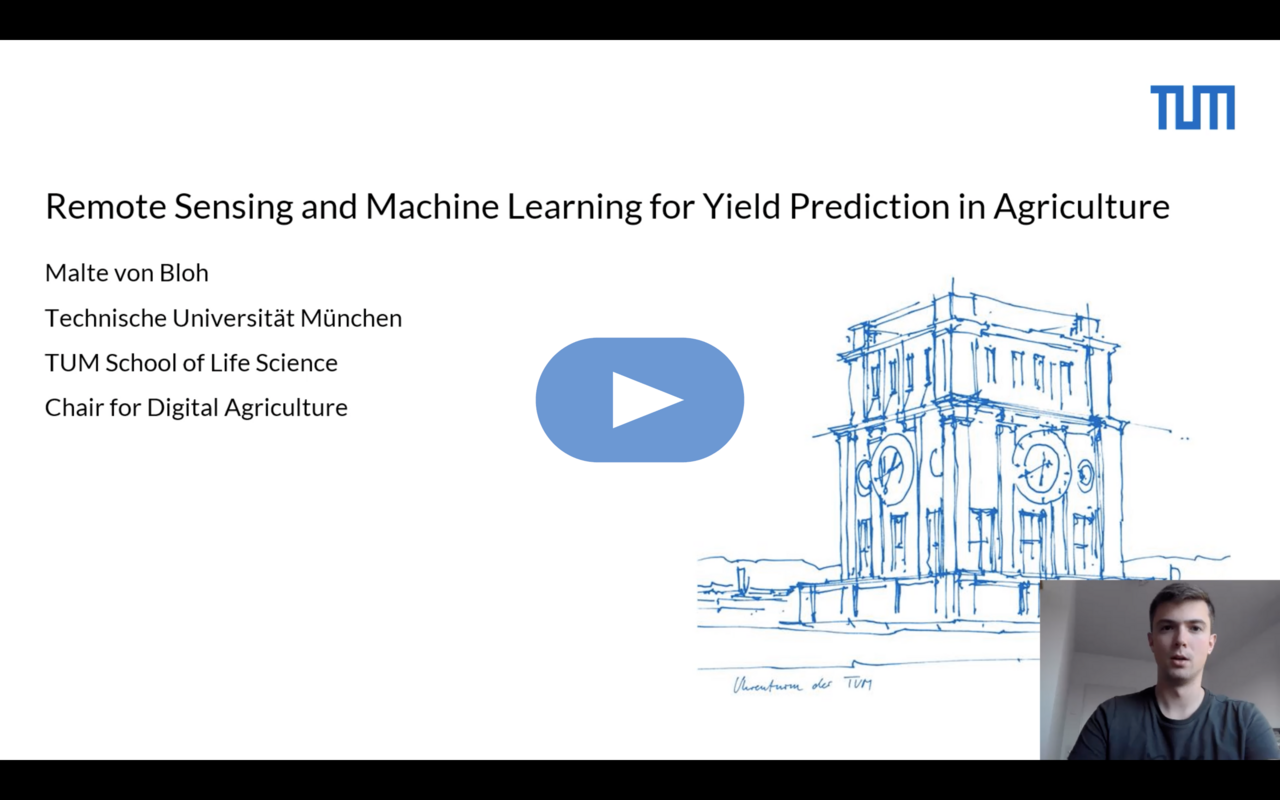Soybean yield estimation with Machine Learning and Remote Sensing in Brazil
This project took place in summer term 2022, you CAN NOT apply to this project anymore!
Results of this project are explained in detail in the final report.
- Sponsored by: TUM Chair of Digital Agriculture
- Project Lead: Dr. Ricardo Acevedo Cabra
- Scientific Lead: PhD candidate Malte von Bloh, PhD candidate Rogerio de Souza Noia Junior
- TUM Co-Mentor: Dr. Ricardo Acevedo Cabra
- Term: Summer semester 2022

About the TUM Chair of Digital Agriculture:
The Chair of Digital Agriculture is part of the TUM School of Life Science and deals with simulation and forecasting models in agriculture. One research focus is on crop forecasts, which are generated for different agricultural crops and at different spatial levels (fields, regional, global). To achieve these goals, we follow a multidisciplinary approach combining agronomy, agrometeorology, climatology with statistics, machine learning or process-based simulation models.
About the project:
Corn, soybeans or coffee – in each sector Brazil is one of the worldwide largest producer of agricultural commodities. Monitoring the crops and being able to predict changes in yield is an important information for farmers, governmental institutions, the FAO or companies.
The goal of the project is to deal with the development and optimization of a time-series yield forecast model for Brazil on a regional scale. Models for up to two arable crops - soybean and coffee - should be created that sequentially predict yield development during the year. A data-driven, machine learning-based approach to time-series predictions will be pursued, with a particular focus on processing satellite imagery in addition to processing climate data. Since 2013, various NASA & ESA satellites have been in orbit, providing both temporally and spatially high-resolution images of every point in the world, which can be used for agricultural monitoring, among other things and is becoming increasingly popular in recent times. In the course of optimizing the models a focus will also be on examining the models to see at what point in the year robust decisions can be made, how this can be improved, and at what point and how yield anomalies can be detected. In addition, one of the questions to be investigated is which arable crops are particularly suitable for yield tracking using satellites, because soybeans and coffee are very different plants that grow in different regions of Brazil and differ greatly in terms of cultivation, management and harvesting.
This project is accompanied by Malte von Bloh and Rogerio de Souza Noia Junior, both research assistants at the chair Digital Agriculture. Participating students will not only improve their knowledge of data science and machine learning but learn how to work with real-world time-series data in a project which results have direct impact for humanity.
